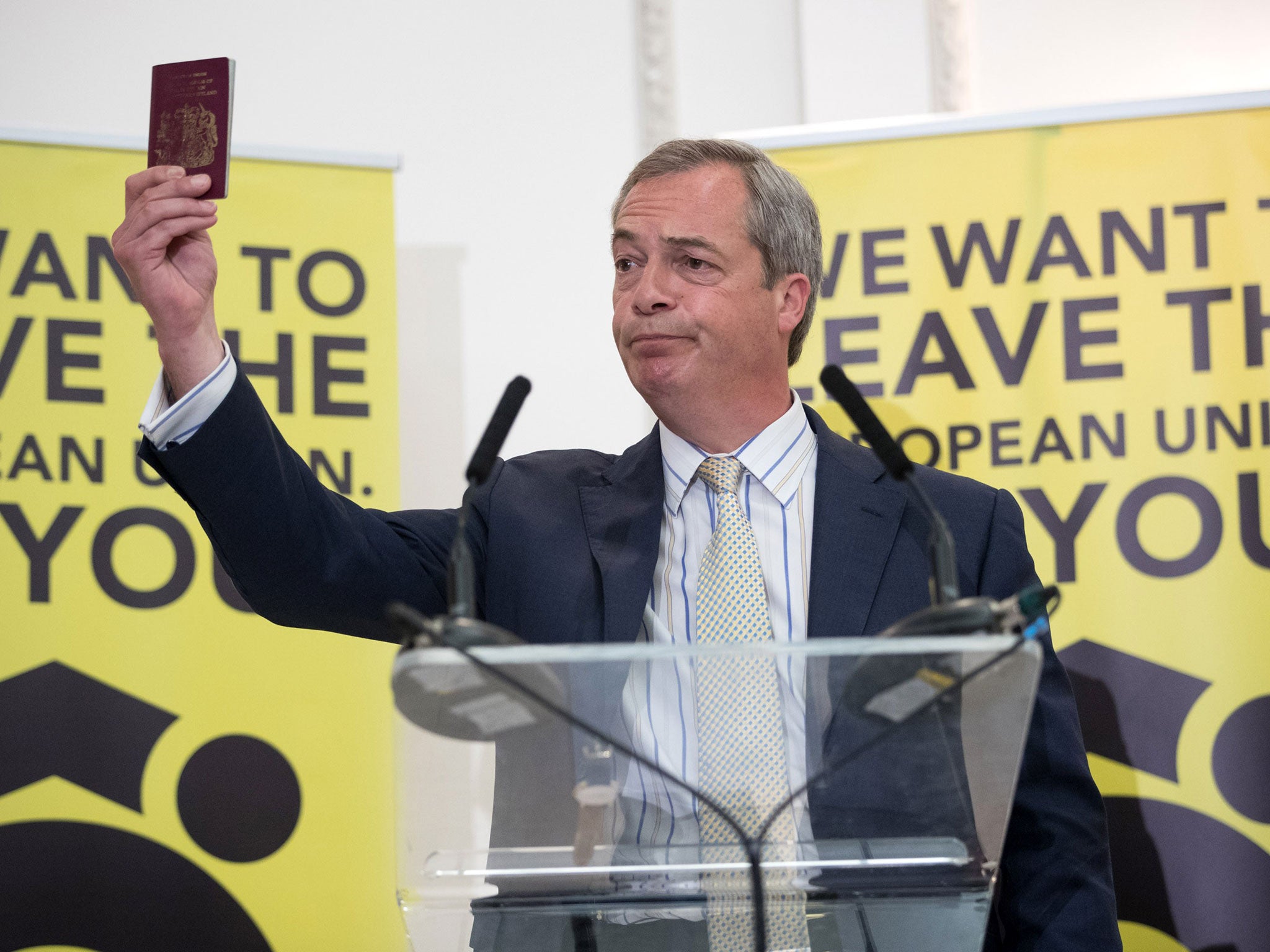The Remain campaign has a positive story to tell on immigration. It’s time they started talking
David Cameron should devote a speech to the issue of immigration so that voters know he is listening to them. He might not convince them all, but he needs to try


Some politicians campaigning for staying in the EU are starting to fear they will win the economic battle but lose the referendum war, largely because of immigration. Their jitters have increased since Tuesday’s ITV debate, in which David Cameron and Nigel Farage faced hostile questions from a studio audience.
Although Farage was accused of encouraging racism by two black members of the audience, Cameron came under pressure from two non-white Brits about immigration – a reminder that concern about the issue is not confined to Little Englander retired colonels and White Van Man.
The PM’s strategy was to change the music, to “the economy, stupid.” Asked about the pressures that immigration puts on the NHS, his default position was that there would be more money for health under the stronger economy that continued EU membership would ensure. Cameron argued that one way to reduce migration was to ensure more Brits get the skills to do the jobs on offer here.
All very worthy, but not enough: he did not address public anxiety about immigration head on.
Some pro-EU MPs with seats in the Midlands and North suspect that a majority of their constituents will vote Leave. They tell me that the powerful economic arguments at Remain’s disposal do not cut much ice with people not sharing the benefits of globalisation, as symbolised by the EU.
“They think Westminster is in denial about the problems caused by immigration,” said one.
While the economy dominated the referendum debate, the Remain camp could be cautiously optimistic. But Leave now has a spring in its step because immigration has come to the fore.
A study of media reports by Loughborough University found that the economy was the main theme in the first three weeks of May, but was overtaken by immigration in the final week. If that trend continues, it would be very ominous for Remain.
It is no longer tenable for Remain to take the view that it is better not to mention immigration because it only helps the other side. This strategy meant that the two Treasury tomes addressing the short and long term impact of Brexit largely skated over the immigration question. Presumably George Osborne judged it was better to keep it out of the headlines.
Yet there is a positive case to be made for migration; Cameron now needs to make it to avoid a career-ending referendum defeat.
He should devote a speech to the issue so that voters know he is listening to them. He might not convince them all, but he needs to try.
Free movement from the EU has boosted growth, productivity and the public finances. Most EU migrants are strivers who come here to work, and contribute more in taxes than they draw in benefits. They include 135,000 who work in NHS and social care. Many do jobs that British people do not want to do.
Cameron unwittingly made a rod for his own back by talking up the idea that EU migrants come to claim benefits. Unable to win any concessions from his EU partners on free movement, the Prime Minister claimed progress by delaying “full” access to benefits for four years. But he rarely mentions the great renegotiation, which shows how thin it was.
True, Cameron would find it harder to admit that the pressures on jobs and public services blamed on immigration are often caused by his austerity programme – not least the financial straitjacket imposed on local authorities. But Labour figures, including Jeremy Corbyn, could say so.
The Prime Minister could take a leaf out of Labour’s book by announcing plans to give financial help to the areas hit hardest by migration, as Corbyn has suggested.
Why not use EU funds, as Gordon Brown has proposed? OK, it might look like a last-minute ploy, but better late than never.
Cameron could also take more action to stop migrants undercutting British workers, as Corbyn proposed at Prime Minister’s Questions on Wednesday. It might go against the Tory grain to further regulate the labour market, but why not stamp out abuses?
There is a way for Cameron to link the economy and immigration – by arguing more forcefully that wrecking the economy through Brexit would not allay people’s fears about jobs, health, housing and schools, and only make the problems worse.
He should do more to expose the Leave camp’s Achilles heel: would we have access to the EU single market after Brexit, and would we would accept free movement in order to secure it?
The PM should also attack the double standards of Leave campaigners who say they want to hit the Government’s target to reduce net migration to under 100,000 a year, but also hint that Brexit would allow more skilled people to come to Britain from Commonwealth countries.
They cannot have it both ways; allowing more non-EU migration (which accounts for more than half of the 330,000 total) would not enable us to hit the target.
Voters know this referendum is not a general election and that, by voting Leave, they will not make Farage prime minister.
Cameron must tell them he would stay on even if he loses, even though we would soon have a new prime minister —probably Boris Johnson.
The old maxim that the economy conquers all other arguments has been proved right at recent general elections. But referendums are different – and highly dangerous, as Cameron now realises as he fights for his political life in a battle he foolishly chose to have.


Join our commenting forum
Join thought-provoking conversations, follow other Independent readers and see their replies